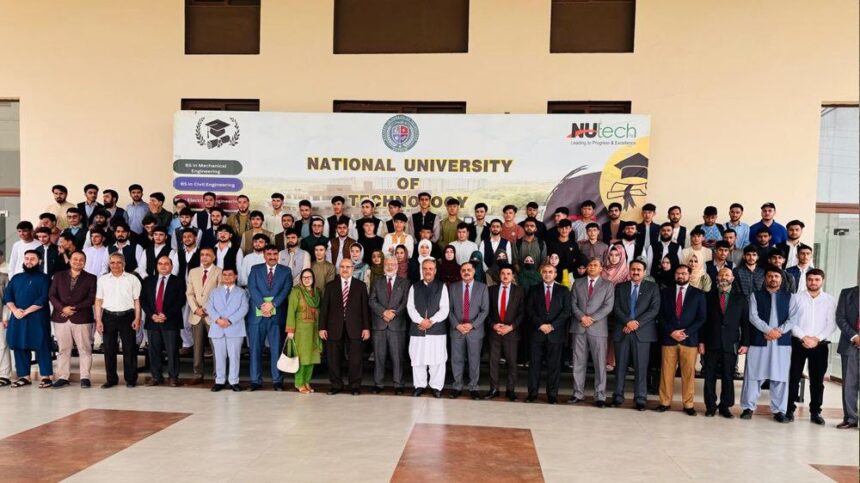RASC News Agency: In a continuing display of regional educational cooperation, Pakistan has welcomed hundreds of Afghanistani students under the Allama Iqbal Scholarship Program, according to Mohammad Sadiq, Pakistan’s Special Representative for Afghanistan. The development comes at a time when educational opportunities within Taliban-controlled Afghanistan remain severely restricted, particularly for women and girls. On Friday, June 27, Sadiq shared images from a formal welcoming ceremony, noting that the new cohort of Afghanistani students arrived in Pakistan to pursue higher education in fields such as medicine, engineering, computer science, business administration, agriculture, and the social sciences. The scholarships are part of an annual initiative sponsored by the Government of Pakistan to strengthen academic ties and support human capital development in Afghanistan.
Significantly, the photographs of the welcoming event revealed the presence of several Afghanistani female students a sight now unimaginable in Taliban-run Afghanistan, where girls above the sixth grade have been effectively banned from schooling, and women barred from universities, public life, and most professions. Observers note that the inclusion of women in the scholarship program signals Pakistan’s subtle pushback against the Taliban’s gender-apartheid policies. “These female students are not only pursuing degrees, but carrying the silenced aspirations of millions of Afghanistani women,” said one Kabul-based educator, who asked not to be named for security reasons.
While Taliban officials have made vague commitments to education in international forums, their domestic policies continue to dismantle institutional learning particularly for half the population. In stark contrast, Pakistan’s initiative stands out as a lifeline for thousands of Afghanistani youth who face an uncertain academic future under Taliban rule. The Allama Iqbal Scholarship Program has, for years, provided hundreds of fully funded academic placements for Afghanistani students. Officials in Islamabad frame the initiative as part of broader efforts to foster regional stability through educational exchange and soft diplomacy. However, critics warn that without structural changes inside Afghanistan, such efforts, though commendable, remain a temporary remedy to a deepening crisis.
Meanwhile, Taliban authorities have neither commented on the students’ departure nor acknowledged the presence of female participants underscoring the regime’s ongoing denial of basic rights and its refusal to tolerate any challenge to its extremist doctrine.






